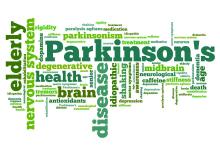Adults with early cognitive impairment are at greater risk for developing parkinsonism than those without cognitive impairment, based on data from 7,386 adults participating in the ongoing Rotterdam Study. The findings were published online Sept. 25 in JAMA Neurology.
“Between 15% and 43% of patients with newly diagnosed Parkinson disease (PD) are cognitively impaired,” wrote Sirwan K. L. Darweesh, MD, of Erasmus MC University Medical Center, Rotterdam, the Netherlands, and his colleagues. However, data on the predictive value of cognitive impairment for parkinsonism has not been well studied, they wrote (JAMA Neurol. 2017. doi: 10.1001/jamaneurol.2017.2248).
The researchers reviewed data from participants in the Rotterdam Study with an average age of 65 years; 57% were women. Dementia was assessed using either the Mini-Mental State Examination or the Geriatric Mental State Schedule organic level, followed by the Cambridge Examination for Mental Disorders of the Elderly.Over approximately 8 years’ follow-up, 1% of the participants were diagnosed with incident parkinsonism.
“Poor global cognition at baseline was associated with a higher risk of incident parkinsonism” with a hazard ratio of 1.79, the researchers said.
“To enable translation of our findings to clinical practice, we present likelihood ratios (LRs) for the baseline presence of isolated or combined cognitive dysfunction and subtle motor features for incident parkinsonism during follow-up,” they noted.
Approximately half of participants diagnosed with incident parkinsonism during the study period had subtle motor features, cognitive dysfunction, or both, at baseline. Baseline cognitive impairment alone showed a likelihood ratio of 1.76 for development of parkinsonism, but the likelihood ratio was greater when both cognitive impairment and subtle motor findings were present (2.66).
“In individuals who received a diagnosis of both incident dementia and incident parkinsonism, baseline cognitive dysfunction was not associated with incident dementia,” the researchers noted.
The researchers determined that the most likely explanation for the association between cognitive decline and increased Parkinson’s risk was that “low baseline cognitive scores may indicate ongoing cognitive decline in prediagnostic patients who probably will develop parkinsonism, most of whom have prediagnostic PD,” they said.
The study findings were limited by several factors including the potential misclassification of parkinsonism diagnosis, the researchers noted. However, the association between poor cognitive function and the risk of parkinsonism and probably Parkinson’s disease remained for the executive, attention, cognitive speed, and memory domains of cognition, they said. “Our findings suggest that poor cognitive functioning can be considered a prodromal sign of PD,” they concluded.
This study was supported in part by Stichting ParkinsonFonds. The researchers had no financial conflicts to disclose.


